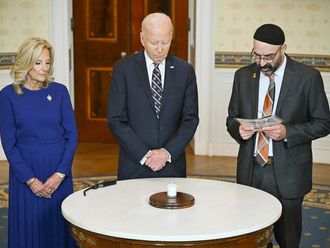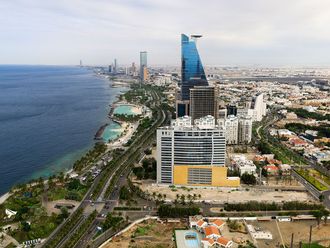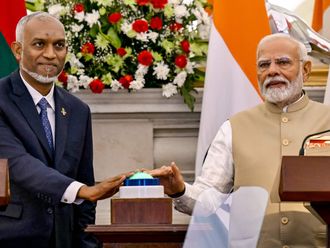Tunis: The head of a group that has government permission to seek to promote religious teachings in Tunisia says he will use persuasion and protest but not violence to encourage Islamic behaviour in one of the Arab world's most secular countries.
Adel Al Elmi, a date merchant by trade, said he changed the name of his organisation from the Group for the Promotion of Virtue and the Prevention of Vice, as it conjured up images of Saudi Arabia's religious police, which beats women who are not properly veiled or men caught outside the mosque at prayer time.
Renamed the Group for Moderation and Reform, Al Elmi said its members would not wield sticks but might approach an amorous couple or a scantily-clad woman in the street and try to persuade them that their behaviour was un-Islamic.
‘We are civil'
"We reject any spectacle that offends Islam and Muslims, any spectacle that opposes the morals of Muslims, especially if it is in the street or in a public place," he told Reuters. "As a group we would not use force... even in extreme cases. We are civil. There are situations where we would pressure the government and public institutions to apply the law and if there is no law we will call for a law."
At the forefront of the Arab Spring after an uprising deposed secular President Zine Al Abidine Bin Ali, Tunisia is now ruled by a coalition that is led by a moderate Islamist party but includes partners who want to keep religion out of politics.
While most Tunisians are Muslims, Tunisia is considered one of the most laid-back countries in the Arab world. Alcohol is served in restaurants and sold in supermarkets, and many Tunisian women shun the veil and jealously guard legal rights in marriage and divorce that are among the most progressive in the region.












